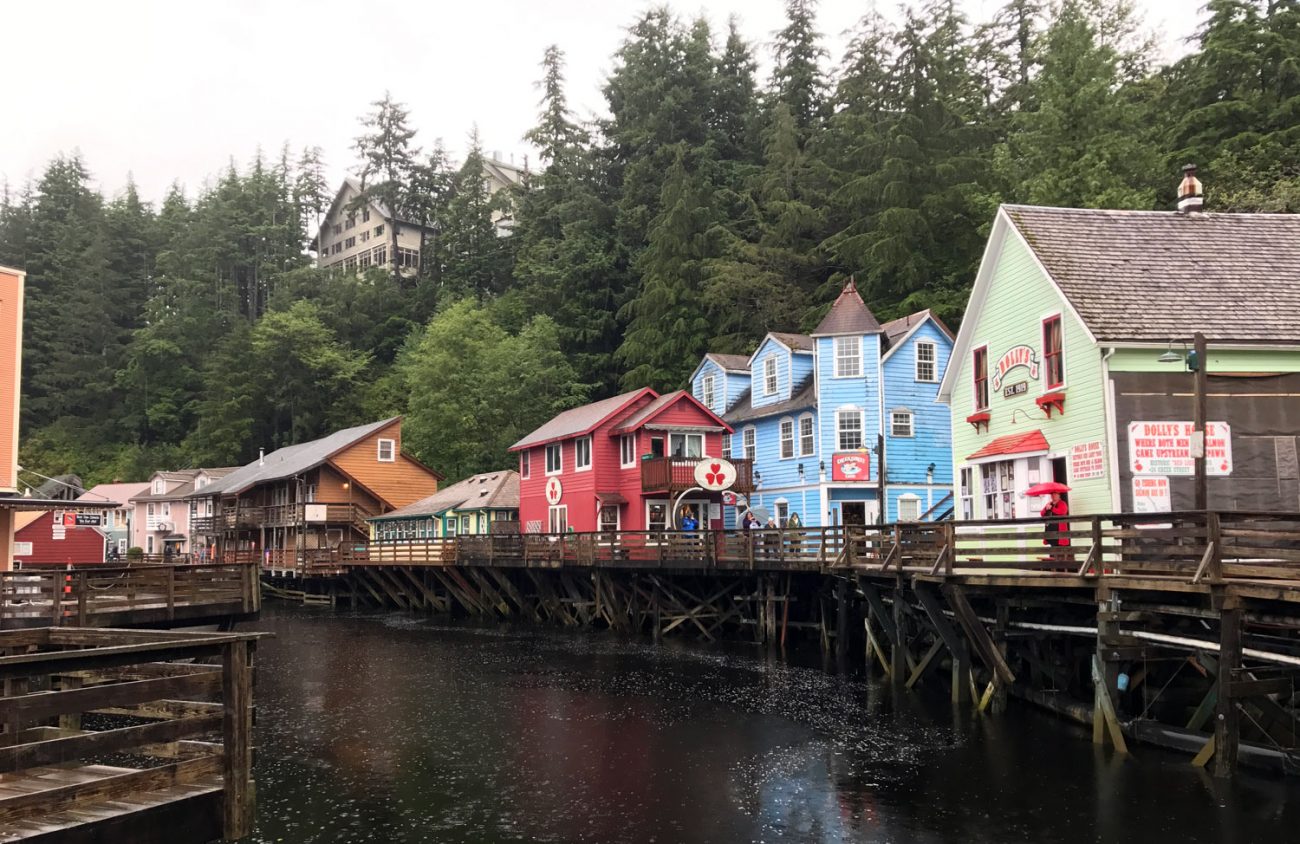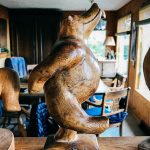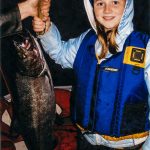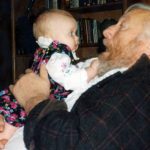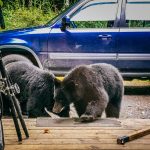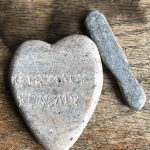Last April, I got a message from my mother that stopped me in my tracks. I was in the midst of writing the cover story of my career when she texted: “Call me when you get the chance.”
My heart sank. I knew what that meant. If it’s something serious, she tries to make sure I get the news at a good time by letting me call her.
I called right away. My grandparents in Ketchikan, Alaska, had caught a bad flu, and my grandpa had developed pneumonia. “Your dad thinks this is the end,” she said. “If you want to see him again, you need to go up there.”
We bought my ticket that day and I flew up that Friday.
My dad was already there. He had arrived first, a week before, to take care of the medical side of things. My uncles and cousins arrived over the course of the next day, all of us converging to say our last goodbyes.
Waiting for someone to die is a terrible experience, but one that draws people together. I still remember the slack look on my uncle’s face: Grief had paralyzed him so he couldn’t even hold his jaw shut anymore. We cried on each other’s shoulders and expressed disbelief that my granddad’s dementia had progressed so far.
My grandma cried at one point and apologized for doing so. My damn family is so stoical they can’t even allow themselves emotion when their lifelong companion dies.
I remember my grandfather as a relatively cold man. He was a big, physical presence, a fisherman, but also a practicing psychologist. Since I’d known him, I remembered him for that coldness and that strength, but my uncles knew him for his intellect and his long, philosophical discussions going late into the night.
By the time I met him in adulthood, that side of him was lost forever. He was still a big, physical man, but his dulled mind had made him softer, quieter. I realized I would never know him as they had, and coming to terms with that was a huge part of my grief.
For years my grandfather wrote notecards to track every thought he had. He would scribble down quotes from books, and from real life, and thoughts he’d had during the day. As we waited for his demise, I read those notes to familiarize myself with who he once was.
One in particular sustained me through that difficult time. It included directions. He had it written on several different cards, so I knew it really meant something to him.
Read slowly and bring mind and spirit to the words.
‘Enough’ by David Whyte from Where Many Rivers Meet
Enough. These few words are enough.
If not these words, this breath.
If not this breath, this sitting here.
This opening to the life
we have refused
again and again
until now.
Until now.
I went back to visit Ketchikan this summer, months after my grandad’s passing. My cousin had moved in with my grandma to keep her company after his death, and we all grieved again when we arrived at the house and realized he wasn’t there — that he never would be again.
It was a raw and emotional visit — but a joyful one, too. We hiked and went crabbing, visited art galleries and spent long, rainy afternoons reading in my grandma’s living room.
I’d like to write an article giving advice on how to enjoy a visit to Ketchikan, Alaska, but Ketchikan means too much to me for me to credibly share it with anyone.
The town is cute, there’s a surprising amount of high quality art that comes out of there, and there’s an incredible museum dedicated to the Tlingit people. That region of Alaska is perfect for fishing, for hiking, for hunting and for sitting inside and enjoying the sound of rain.
But I can’t describe this place without describing my family. I associate Ketchikan with long, wet hikes, with cups of coffee over card games, with the elegant woodcarvings of dancing bears that my great grandfather carved for each member of my family. Ketchikan, in my mind, is my grandmother’s house and my aunt’s stories of chasing black bears away from her property with bottle rockets. She lives near a fishery and the bears are ubiquitous.
Ketchikan is eagles swarming like crows over the guts of a freshly killed salmon thrown into the water off my grandfather’s boat. It’s holding that salmon’s still-beating heart in my hand, fascinated by the mechanics of life and death. It’s eating the same fish that very night, fresh and tastier for having caught it ourselves.
Ketchikan is reflecting on my great-grandfather, an immigrant from Iceland, who loved my father and me more than anyone in the world. It’s laughing 10 years after his death over the pranks he pulled on our family — he loved to shove your thumb in the butter when you asked him to pass it to you at the dinner table.
My aunt this summer gave me a stone heart Grandpa had carved my name into. It felt like a message from beyond the grave — “You are still loved.”
When you don’t live in a place, but visit it often, it becomes a symbol of so much more than it would ever be to a local. Ketchikan is just home to my grandma, but to me, it’s familial love itself.
So yes, you should visit Ketchikan. Look for the mural my aunt Halli painted on the wall of the New York Cafe with her good friend, Ray Troll. Look at the fishing boats and look for eagles and bears.
But also visit the town that means the same things to you. I’ve never regretted it.
